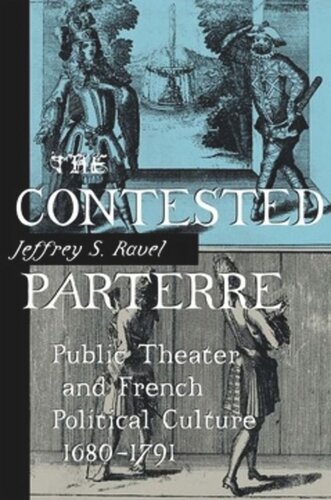

Most ebook files are in PDF format, so you can easily read them using various software such as Foxit Reader or directly on the Google Chrome browser.
Some ebook files are released by publishers in other formats such as .awz, .mobi, .epub, .fb2, etc. You may need to install specific software to read these formats on mobile/PC, such as Calibre.
Please read the tutorial at this link: https://ebookbell.com/faq
We offer FREE conversion to the popular formats you request; however, this may take some time. Therefore, right after payment, please email us, and we will try to provide the service as quickly as possible.
For some exceptional file formats or broken links (if any), please refrain from opening any disputes. Instead, email us first, and we will try to assist within a maximum of 6 hours.
EbookBell Team

0.0
0 reviewsIn the playhouses of eighteenth-century France, clerks and students, soldiers and merchants, and the occasional aristocrat stood in the pit, while the majority of the elite sat in loges. These denizens of the parterre, who accounted for up to two-thirds of the audience, were given to disruptive behavior that culminated in full-scale riots in the last years before the Revolution. Offering a commoner's eye view of the drama offstage, this fascinating history of French theater audiences clearly demonstrates how problems in the parterre reflected tensions at the heart of the Old Regime.Jeffrey S. Ravel vividly depicts the scene in the parterre where the male spectators occupied themselves shoving one another, drinking, urinating, and confronting the actors with critiques of the performance. He traces the futile efforts of the Bourbon Court—and later its Enlightened opponents—to control parterre behavior by both persuasion and force. Ravel describes how the parterre came to represent a larger, more politicized notion of the public, one that exposed the inability of the government to accommodate the demands of French citizens. An important contribution to debates on the public sphere, Ravel's book is the first to explore the role of the parterre in the political culture of eighteenth-century France.